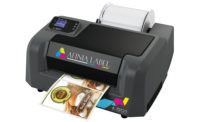For product to be purchased, it has to get to where it’s going. Several new route-planning and vehicle-tracking systems promote on-time delivery, which is imperative for today’s competitive bakeries and snack food companies.
Delivering product on time and in good condition is imperative in the competitive bakery and snack food markets. Although many barriers stand in the way of this from occurring, new fleet-management tools are available to help food producers do just that. Route-planning systems can be linked to vehicle-tracking technology to streamline logistics. Also, new engine-connected GPS devices have real-time access to fuel data and provide information for managing drivers.
“This is a very competitive market,” acknowledges William Salter, president and CEO, Paragon Software Systems Inc., Frisco, Texas. “Therefore, bakery and snack food producers need to ensure that their products are on store shelves when consumers want them. There’s pressure from supermarkets for suppliers to guarantee delivery times. Roadblocks to making this happen include unpredictable traffic, lack of route optimization and tight [delivery] time windows.”
Challenges on the road
A number of fleet-related trends are impacting the bakery and snack food market, experts agree. New safety regulations mean that foods need to remain at the right temperature—as well as be closely monitored and documented—during every step in the supply chain. This requires having a well-maintained fleet, the right equipment and tracking technology to ensure compliance. And like everything else, the cost of purchasing and maintaining new vehicles that meet the latest emissions requirements has increased. A talent shortage also has made it difficult to attract and retain quality, professional truck drivers.
A number of factors can hinder on-time delivery, according to Howard Saul, food and beverage industry specialist at Ryder Systems Inc., Miami. “The average fleet in the U.S. has aged, as companies have held off on making new vehicle purchases over the past several years,” he says. “As equipment gets older, it experiences more frequent breakdowns. In light of this, a comprehensive maintenance program has become even more critical to improving vehicle uptime.
“In addition, new hours-of-service rules have created challenges for fleets that need to make daily deliveries. In certain daily delivery applications, producers may need to hire more drivers to maintain their current schedules.” As a result, many bakery and snack food producers are outsourcing their delivery operations to third-party providers such as Ryder.
Emerging consumer trends are further impacting this situation. “There is a national focus on healthy snack alternatives,” says Ray Zujus, business development director for food and beverage, Telogis, Aliso Viejo, Calif. “Whether it’s organically grown or gluten-free ingredients, new stock-keeping units (SKUs) are being added and lines are expanding, which complicates the delivery process and [can] erode productivity.”
Fleet-management solutions
Telogis offers fleet-management solutions that can help improve productivity and offset delivery costs. “By providing optimized routes, visibility of what’s happening on those routes and connectivity with drivers all in one place, managers can quickly identify areas for improvement and make the adjustments necessary to ensure efficiency,” Zujus explains.
Route optimization programs are evolving to improve fleet management. “Vehicle route optimization software is becoming more sophisticated,” says Salter. “Within the last 10 years, we have seen significant enhancements in the range of functionality that suppliers have to offer. Routing systems are now more widely linked to other areas of a business. We see this as a reflection of the growing costs associated with transportation operations and the need for a wider business view in terms of monitoring costs and performance.”
Paragon Software Systems offers route-planning software that enables fleet managers to set a range of constraints at the individual customer level. The software produces routes that adhere to these time constraints—whether for a particular time slot or a specific vehicle type. “An automatic system such as this, which uses an advanced software algorithm, can produce an accurate route based on real-life parameters,” Salter notes. “The result is improved service reliability, a key to success within these competitive market sectors.”
The company also offers the Paragon fleet controller, which enables tracking of real-time truck activity against planned routes and schedules. This gives transportation managers real-time visibility of how the day’s plan is progressing and provides an accurate picture of transportation and service performance. “It enables bakery and snack food plants to improve their customer service, respond to problems or delays, ensure that delivery schedules are legal and achievable, and unearth hidden inefficiencies for continuous performance improvement,” Salter says.
Onboard telematics systems, such as Ryder’s RydeSmart technology, can help businesses track their fleets in real time, according to Saul. The technology enables fleet managers to monitor and reduce out-of-route miles and unauthorized idling time, which helps reduce fuel consumption. “Telematics technologies are also used to help communicate vehicle performance issues back to fleet managers,” he adds. “In Ryder’s case, we can monitor a vehicle and instruct a driver to bring it to our shop for preventive maintenance before a small issue turns into a breakdown on the road.”
Fuel and labor costs are the biggest roadblocks to efficient delivery of food products, according to Ananth Rani, vice president and general manager of Azuga, a San Jose, Calif.-based supplier of cloud-based GPS fleet-tracking and driver-behavior systems. “To manage fuel use, you have to use technology that is in direct communication with the engine computer, not a standard GPS system that talks to the sky to pinpoint location and requires upgrades to determine additional information,” he says. “New plug-and-play technologies and devices are changing the game in terms of how fuel gets measured, how driver behavior affects costs and how fleet managers can access delivery information, in turn providing better customer service.”
Mark Singleton, vice president of sales and marketing for Rudolph Foods, a major producer of snack products based in Lima, Ohio, says that PDAs, smart phones and other hand-held devices are being customized to help with route sales management at his company. “On a particular route, these devices can keep records of what a driver is selling in a store, which helps clarify exactly what is needed to stock the shelves,” he says. “The larger producers have been doing this for years; however, this technology is now making its way to distributors at every level.”
Behavior management
Fleet-management tools are even available to manage the behavior of drivers. “A good location intelligence solution can provide visibility into when a driver is speeding or driving aggressively (hard braking and hard acceleration),” says Zujus. “In addition, such a device can provide dashboards to show how the route is being run against the plan (plan versus actual) and identify undesirable behaviors such as out-of-route miles and missed or unplanned stops.”
These programs can be used by individual drivers as well as management. “A solid social navigation solution allows for continual updating to provide the most current road conditions,” Zujus says. “Mobile solutions provide not only real-time job and customer information updates, they also provide driver-specific performance measures such as safety scores that are based on how he or she is driving.”
By their very nature, fleet-management tools also help reduce driver overtime pay. Producing a route that can be run without modification is the key to holding drivers accountable to the plan and eliminating out-of-route miles and the associated wasted time that typically results in overtime. “Typically, installation of a GPS fleet-management system immediately causes a change in driver behavior and this reduces overtime by one hour per week, literally paying for new cloud-based systems within a few weeks,” says Rani.
An eye on the dock
More bakery and snack food plants are introducing automation to the order fulfillment and shipping areas of their businesses, according to Mark Braun, president of PCdata Inc., East Granby, Conn. Solutions such as PCdata’s Distrib Pick-to-Light can improve fleet management, he says. By showing the real-time status of order fulfillment, surprises are avoided and the right truck shipments are scheduled.
PCdata also offers a Dock Manager solution, designed to ensure that the right products get loaded onto the right trucks. Auto-focus scanners, mounted at the doors, monitor products being moved into the trucks. If the wrong stack is loaded, an audiovisual alarm alerts the operator and supervisor.
“At the time of wrapping the truck for departure, Dock Manager shows the supervisor whether a product is still missing for the drop point(s) for that particular truck,” Braun explains. “When the vehicle leaves, the receiving facility is notified of the truck content and delivery schedule. This reduces shipping errors and maximizes truckloads.”









